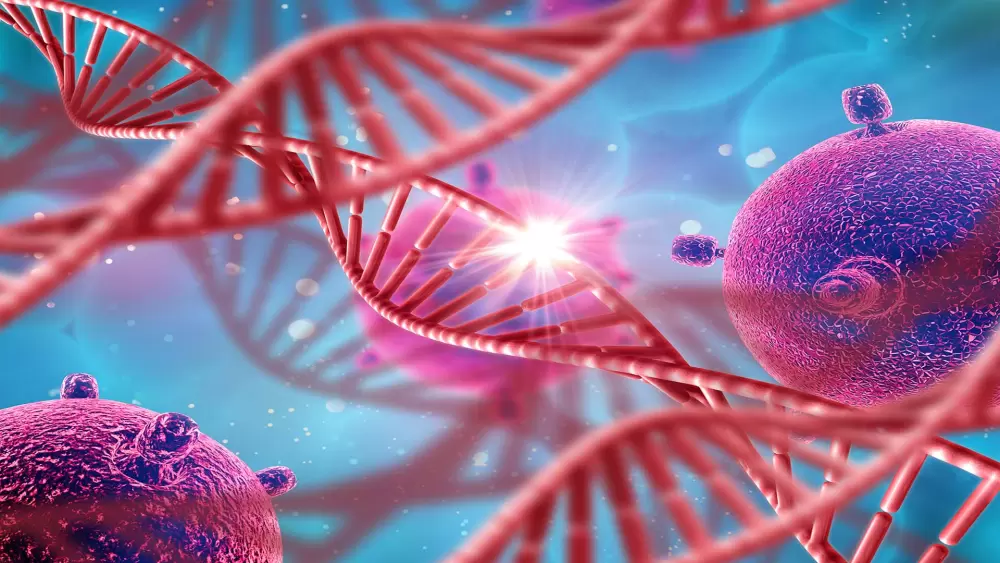WHAT ARE HAPPINESS HORMONES AND HOW DO THEY AFFECT YOUR MOOD?

When you have had a pleasant day with friends, taken a nice walk in the woods, or enjoyed a romantic dinner with your partner, you feel satisfied and happy. Valuable activities ensure this, you would think. But not only what you do gives you feelings of happiness, substances in your body called happiness hormones also play a role. In this blog, you will read what these happiness hormones are and how they affect your mood.
What are happy hormones and what do they do?
You probably know that feeling, after a day that went completely the way you wanted it to. You enjoyed the nice weather and went out for the day. Together with your partner, you watched a nice film and now you lie in bed feeling satisfied. You feel fulfilled, happy and content. To feel good it is important to do fun things, but that is not the only thing that plays a role here. In fact, there are also a number of hormones that influence your mood: the happiness hormones.
These happiness hormones (they are actually neurotransmitters) are produced in different parts of the body. They have a positive effect on your mood and promote feelings of contentment, happiness, connection and pleasure. Life would just be a dull, grey affair without these neurotransmitters. So happiness hormones are pretty important for enjoying life.
The four main happiness hormones
There are several happiness hormones that make you feel satisfied and happy. Below you can read a bit more about the four most important ones.
Serotonin
Serotonin is perhaps the neurotransmitter that has the greatest impact on both your physical and mental well-being. It plays a role in the regulation of important bodily functions (such as digestion, immunity and the functioning of some organs). Serotonin helps you cope with setbacks and helps keep your mood balanced. Those who produce enough of this neurotransmitter have healthy self-confidence, a good mood and can deal with criticism. You support serotonin production by eating healthy food (with enough carbohydrates) and by spending at least 15 minutes in the sun every day.
Oxytocin
Oxytocin is one of the happiness hormones important for socialising. It is produced when you engage in meaningful interactions with others. You feel connected to others and enjoy being together. The hormone plays a role in feelings of empathy and trust. It is also called the cuddle hormone, as its levels in your body rise when you touch someone or give them a hug. Oxytocin is also important for the bond between parents and children.
So make sure you have valuable contacts with others to boost oxytocin production. But cuddling with animals also increases it, so playing with your dog or petting the cat on your lap is also a good way!
Dopamine
Dopamine is truly a happiness hormone. This neurotransmitter creates feelings of happiness and joy. However, it also plays a role in motivation and goal achievement. When you work through until you complete a task, you get a boost of dopamine. Dopamine therefore unfortunately also plays a role in addictions, where you are eager to experience those positive feelings again and therefore start repeating behaviours quickly. Dopamine levels rise when you do something that helps you relax and that you enjoy, such as walking in nature, doing yoga or reading a book.
Endorphins
Endorphins play a role in physical activity and the positive feelings you get when you push the limits. It is the substance responsible for the well-known "runner's high". It is a natural painkiller, helping you cope better with stress and discomfort. So actually, it does not directly create positive feelings, but prevents negative feelings. You can increase your levels of endorphins by getting more exercise, especially endurance sports. But other forms of exercise (and sex) are also good for this.
Disrupting the production of happiness hormones
As you could read above, there are certain activities that can boost the production and release of happiness hormones. But of course, it is your brain and certain glands that ensure that enough of certain substances are produced. Yet this regulation can become disrupted. For instance, people who suffer from anxiety or depression produce fewer neurotransmitters. This is why they feel gloomy, tired and anxious.
Humans have found a solution to this by developing SSRIs. These are selective serotonin reuptake inhibitors. They make serotonin less likely to be reabsorbed by the body, so it stays circulating in the blood longer. This can reduce symptoms such as anxiety, depression and obsessive compulsive disorder. However, SSRIs cause dependence and bring with them the necessary side effects. Still, for people with severe symptoms, they can be a good way to be able to control them.
Supplements for happiness hormones
Apart from certain activities, supplements can also be used to influence happiness hormones. If you want to support the production of neurotransmitters in general, it is advisable to use magnesium. This mineral is involved in almost every step of neurotransmitter production. There are several medicinal mushrooms that support neurotransmitter production and activity. These include shiitake, maitake and reishi.
If you want to increase serotonin levels, you can use St John's wort, for example. This herb can cause serotonin to circulate in the blood longer. This can have a positive effect on your mood, which is also why St John's wort can be used for depression. Landracer Sleepwell tea contains several herbs, including St John's wort. Turmeric is also a substance that can have a positive effect on the production of serotonin and also dopamine.
As a final natural remedy to boost your happiness hormones, you can try CBD. CBD is a cannabinoid that can affect mood via the endocannabinoid system. As a result, CBD can boost or inhibit neurotransmitter levels, depending on the situation and what you need.




















